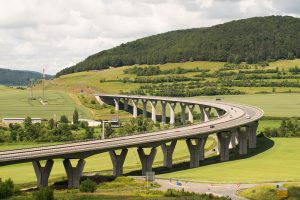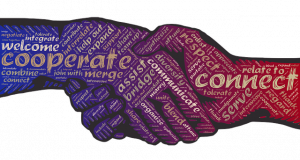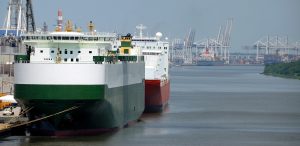So what is the crux of the problem:
- Capitalism promotes migration of jobs and work to the cheapest possible location;
- Probably ethically right since it rewards the group that is the most desperate, but is unfair to the group that has a net outward migration of jobs
- Results in massive job losses and desperation in one location while net influx of jobs and prosperity in another
- Retraining and a repurpose of labor at source location is usually not attempted or isn’t very successful
- The group losing the jobs is politically powerless to resist or prevent it
Let’s do a simple SWOT analysis of all the players involved :
Company:
Strength: Capital; Agile Business and Production Processes
Weakness: Bad Political Reputation, and hence opponents try to fight this practice using protectionist/nationalist policies
Opportunity: Find the optimal production cost to maximize profits and share holder returns
Threat: Competition achieves a lower per unit cost of production and thus loss of market share
Investors & Share Holders:
Strength: Capital
Weakness: Run towards the best returns, sometimes very short term focussed rather than long; i.e. support a steep discount rate
Opportunity: Deploy capital that can be most productively used; Employ private equity/venture capital investment constructs to lock in capital to generate superior returns in the medium term instead of meagre short term gains.
Threat: Other investors generating better returns
Workers at the outbound location:
Strength: Political say at the local level
Weakness: No Capital to invest
Opportunity: Human capital that is free
Threat: A lower cost location comes up and takes on the production and jobs from them; Not trained in anything other than what they are currently doing
Workers at the inbound location:
Strength: Political say at the local level
Weakness: No Capital to invest
Opportunity: Human capital that is free
Threat: Another lower cost location comes up and takes over the production and jobs from them; May not have any training
Given the incentives, a capitalistic society gravitates towards specializing and optimizing labor, capital and production usually towards the detriment of its own workers but in favor of its investor class.
What I propose:
Change the game to utilize the strengths for each player – investors to provide capital to competitive projects, localities to use their resources to set up the right competitive projects using local resources and labor, executors that have a proven track record to implement the projects in a transparent and efficient manner, operators to run the venture profitably and an infrastructure exchange that removes friction from investment, project execution, operation and the ability to move investments in and out of these projects that compete for being a better investment.
Infrastructure Exchange Market
What?
An open market place for micro/ project level sponsorship.
Starts with a contractual agreement between sponsors/implementors/operators on initial project parameters
Proposal put up for bit to the investors – micro credit – or ordinary shares available to folks with a well defined investment profile
Types of projects accepted:
– wind farms
– solar farms
– energy storage pods
– efficiency projects – reduce energy consumption run rates
– later could move to any infrastructure project – build roads / bridges etc.
Why?
– a way to fund infrastructure from goal minded folks that believe in sponsoring a projects goals while making sure of decent returns on investments
Goals can be
– renewable energy
– create jobs
– reduce pollution
– build infrastructure
– competition drives performance
– easy in and out through trading in the infrastructure bank exchange
How?
– sponsors propose projects on exchange
– investors buy in interest; when project fully invested in – kicks off
– implementors run with it and complete execution
– hand over to operators that run and produce steady annuities
– project shares trade on exchange in terms of how well they are doing and can be traded
– all activities have a std set of metrics that are measured and published for full transparency
– create a path for projects to fail and be winded down
– create market on which mature projects performing as annuities can be traded and folks can move in and out of the projects
– should you create it as a bond structure – like infrastructure bonds backed by local/state government?
When?
– create exchange with functionality for each participant
– get investors to fund operations
– sign up sponsors / implementors / operators
Where?
– where there is the greatest need
– local governments struggling with creating jobs but have local resources that can be leveraged
– Examples of local resources
– Land
– Wind power
– Solar power
– Hydro power
Who?
Initial investors – those that fund the exchange
Implementors – those that set up the projects initially
Operators – those that run and maintain the projects – create local jobs;
Investors – who fund the projects
Sponsors – local governments/state that can provide resources (e.g. Land lease/ rent etc)
An exchange like the one described above will align the incentives between the workers and the investors to create a win-win situation for both….
We are currently working on a prototype for the platform….watch this space…






 Once the value of the vote goes down, what you see is election of Incompetent or Callous leaders into the government, which further endangers the existence of democracy or capitalism.
Once the value of the vote goes down, what you see is election of Incompetent or Callous leaders into the government, which further endangers the existence of democracy or capitalism.



 the internet, the GPS system, antibiotics and miracle drugs we have on the market. All of these are innovations that started as government projects and were then handed over to private enterprise.
the internet, the GPS system, antibiotics and miracle drugs we have on the market. All of these are innovations that started as government projects and were then handed over to private enterprise.

 happens daily across borders. This brave new world that was entered after the war is caused by a process called globalization. Globalization, according to Wikipedia, “is the action or procedure of international integration arising from the interchange of world views, products, ideas, and other aspects of culture.” Globalization has changed the world for the better, and it should become the standard for humanity. Its benefits include, but are not limited to, per capita and revenue growth, the spread of democracy through the developing world, and a general interconnectedness between the human species brought about by the social, technological, and ideological exchanges across the world.
happens daily across borders. This brave new world that was entered after the war is caused by a process called globalization. Globalization, according to Wikipedia, “is the action or procedure of international integration arising from the interchange of world views, products, ideas, and other aspects of culture.” Globalization has changed the world for the better, and it should become the standard for humanity. Its benefits include, but are not limited to, per capita and revenue growth, the spread of democracy through the developing world, and a general interconnectedness between the human species brought about by the social, technological, and ideological exchanges across the world. were once limited to operations in very few countries were able to create jobs where labor was cheapest, resulting in more employment, and a rise in standard of living in poor countries, like China. China’s economy is a prime example of the economic benefits that globalization has produced. China has become a hub for manufacturing, with companies like Apple producing most of their products there. Since 1990, GDP per capita increased exponentially, going from USD 317.885 in 1990 to USD 8,027.684 in 2015. Higher individual wages also correlated with a higher total GDP. GDP in China went from 360.859 billion USD in 1990 to USD 11.008 trillion in 2015. This huge increase in economic value is thanks to the countless companies that have taken advantage of China’s booming population and workforce. This in turn raised incomes for the majority of the Chinese populace. Standards of living have been going up, and outbound tourism from China has been steadily increasing, from 4 million people in 1999 to 50 million people in 2015. China is just one example of the profound effects globalization on a population. As the winds of globalization inevitably sweep across the world, many developing countries will turn in to booming, prosperous nations. According to the Peterson Institute of International Economics, “A sophisticated model predicts that
were once limited to operations in very few countries were able to create jobs where labor was cheapest, resulting in more employment, and a rise in standard of living in poor countries, like China. China’s economy is a prime example of the economic benefits that globalization has produced. China has become a hub for manufacturing, with companies like Apple producing most of their products there. Since 1990, GDP per capita increased exponentially, going from USD 317.885 in 1990 to USD 8,027.684 in 2015. Higher individual wages also correlated with a higher total GDP. GDP in China went from 360.859 billion USD in 1990 to USD 11.008 trillion in 2015. This huge increase in economic value is thanks to the countless companies that have taken advantage of China’s booming population and workforce. This in turn raised incomes for the majority of the Chinese populace. Standards of living have been going up, and outbound tourism from China has been steadily increasing, from 4 million people in 1999 to 50 million people in 2015. China is just one example of the profound effects globalization on a population. As the winds of globalization inevitably sweep across the world, many developing countries will turn in to booming, prosperous nations. According to the Peterson Institute of International Economics, “A sophisticated model predicts that  global free trade, removing all post-Uruguay Round barriers, would lift world income by $1.9 trillion ($375 billion for Japan, $512 billion for EU and EFTA, $537 billion for the US, $371 billion for developing countries, $62 billion for Canada, Australia, New Zealand).” This “global free trade”, brought about by trade deals like NAFTA and TPP, will enable labor to spread around the world and increase incomes across the board for citizens of the globe. However, globalization has come under fire from many people, including US President Donald Trump. His entire campaign was directed against globalization, claiming it took away jobs from “ordinary, hardworking Americans”. It is true, that free trade drives companies to shuffle jobs around different countries, potentially leaving some people behind. The key to solving this issue is adaptability. Globalization hastens the pace of innovation across industries, thanks in no small part to the input of ideas from around the globe. New innovations can create new avenues for moneymaking, thus creating newer jobs in the places that lost them. To maximize global revenue, trade deals between nations should make it easier for companies to move across borders, all while keeping a balance of power between people, corporations, and governments. In fact, trade deals like these should include councils of representatives from corporations, governments, and unions, enabling openness and transparency in all facets of the economy.
global free trade, removing all post-Uruguay Round barriers, would lift world income by $1.9 trillion ($375 billion for Japan, $512 billion for EU and EFTA, $537 billion for the US, $371 billion for developing countries, $62 billion for Canada, Australia, New Zealand).” This “global free trade”, brought about by trade deals like NAFTA and TPP, will enable labor to spread around the world and increase incomes across the board for citizens of the globe. However, globalization has come under fire from many people, including US President Donald Trump. His entire campaign was directed against globalization, claiming it took away jobs from “ordinary, hardworking Americans”. It is true, that free trade drives companies to shuffle jobs around different countries, potentially leaving some people behind. The key to solving this issue is adaptability. Globalization hastens the pace of innovation across industries, thanks in no small part to the input of ideas from around the globe. New innovations can create new avenues for moneymaking, thus creating newer jobs in the places that lost them. To maximize global revenue, trade deals between nations should make it easier for companies to move across borders, all while keeping a balance of power between people, corporations, and governments. In fact, trade deals like these should include councils of representatives from corporations, governments, and unions, enabling openness and transparency in all facets of the economy.  If such a system is implemented on a global scale, the prosperity of the human race will soar.
If such a system is implemented on a global scale, the prosperity of the human race will soar.